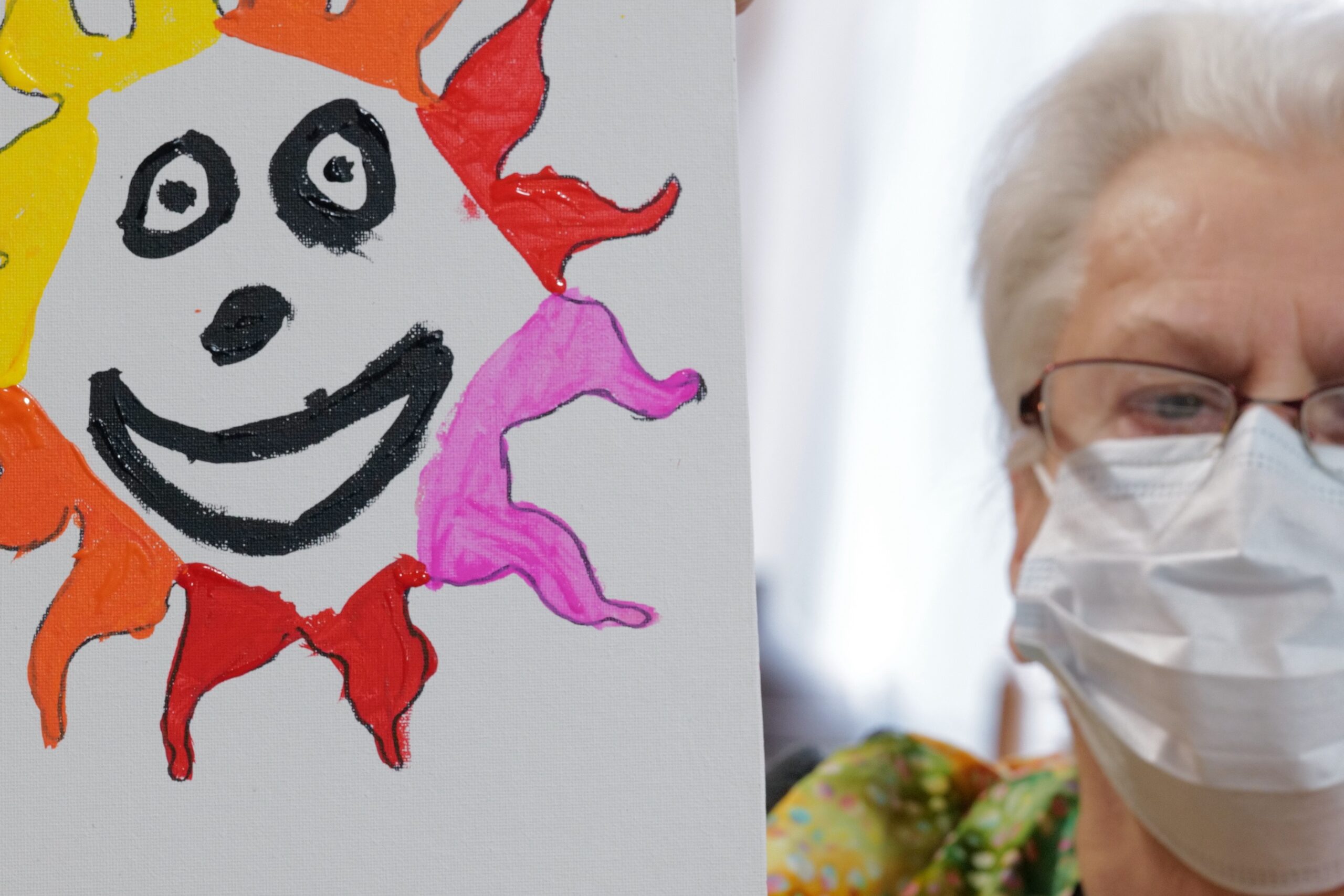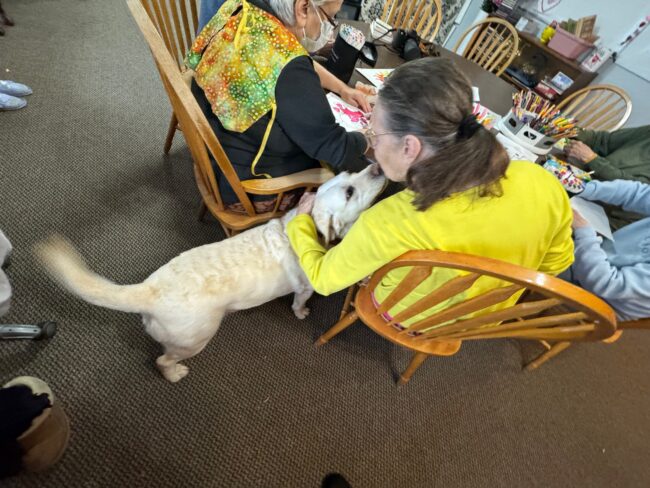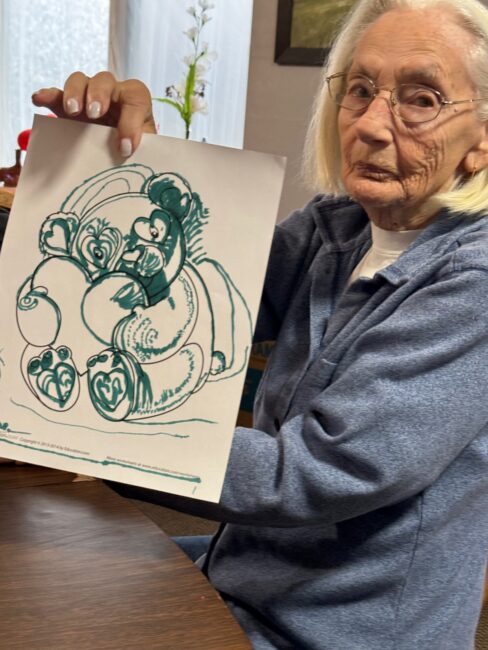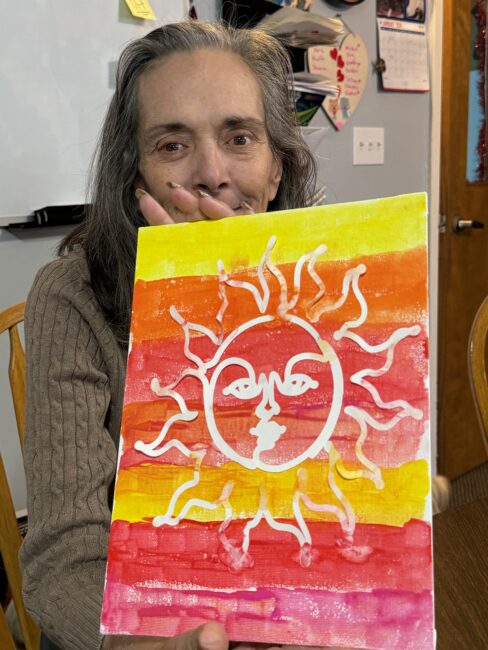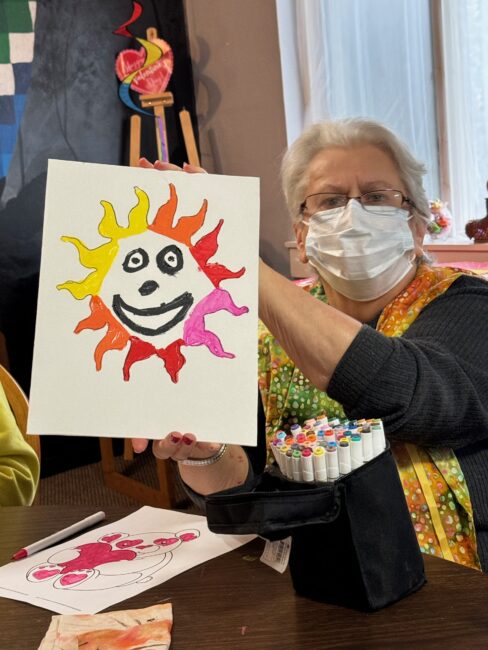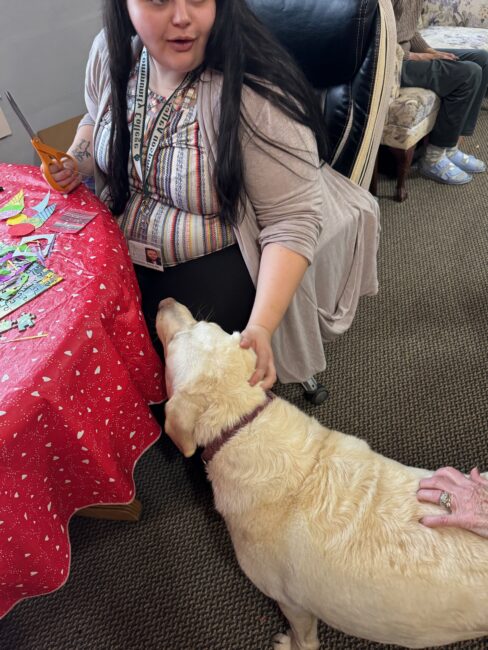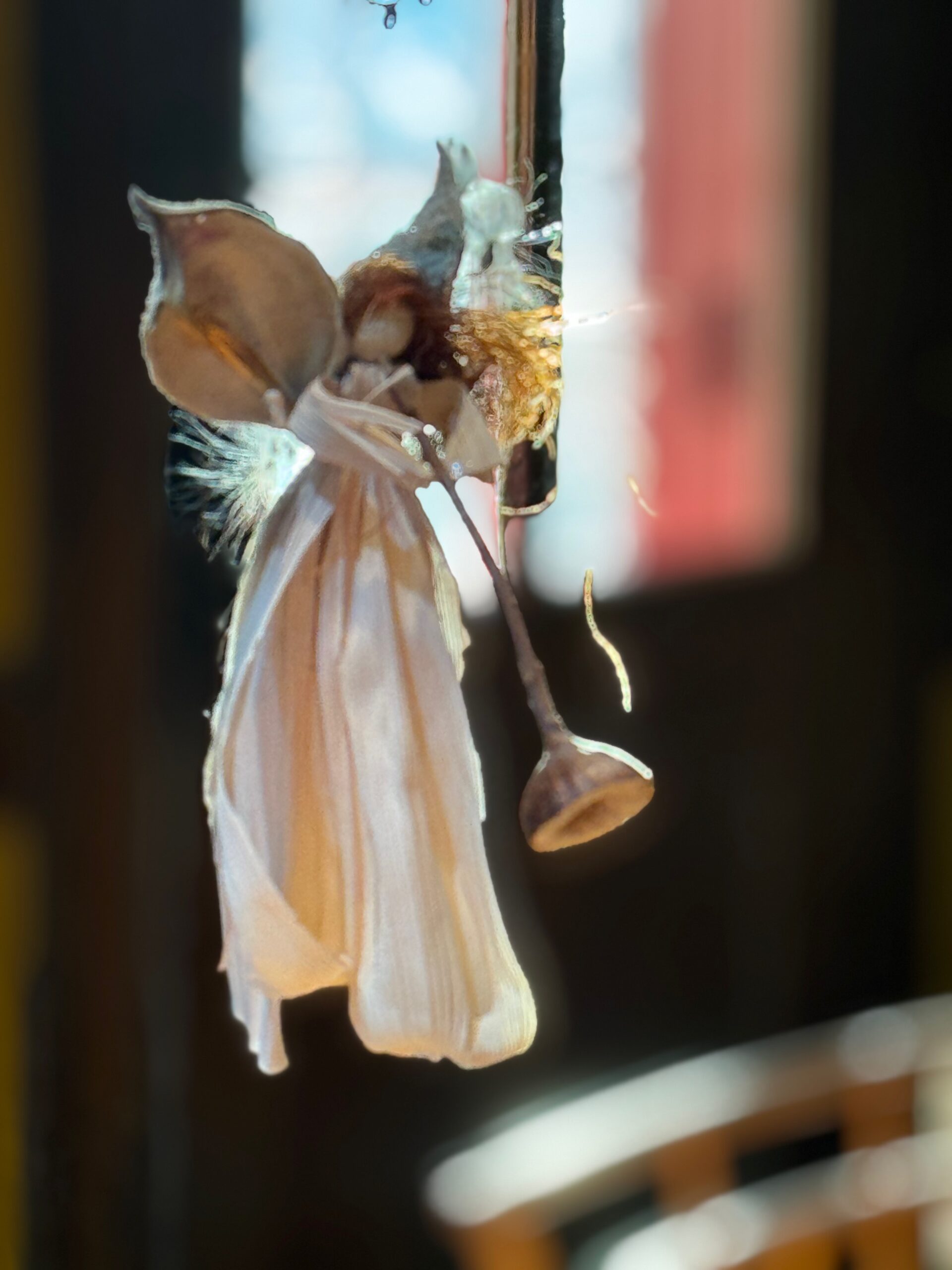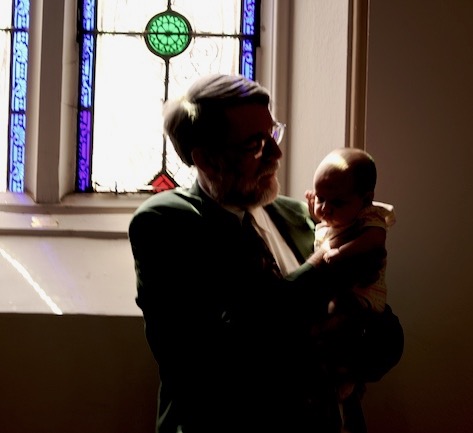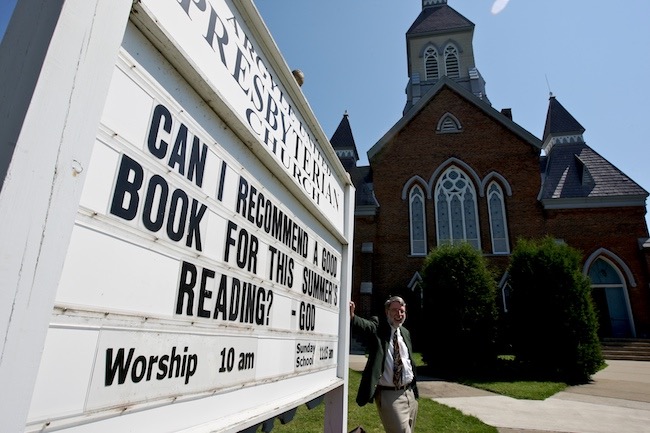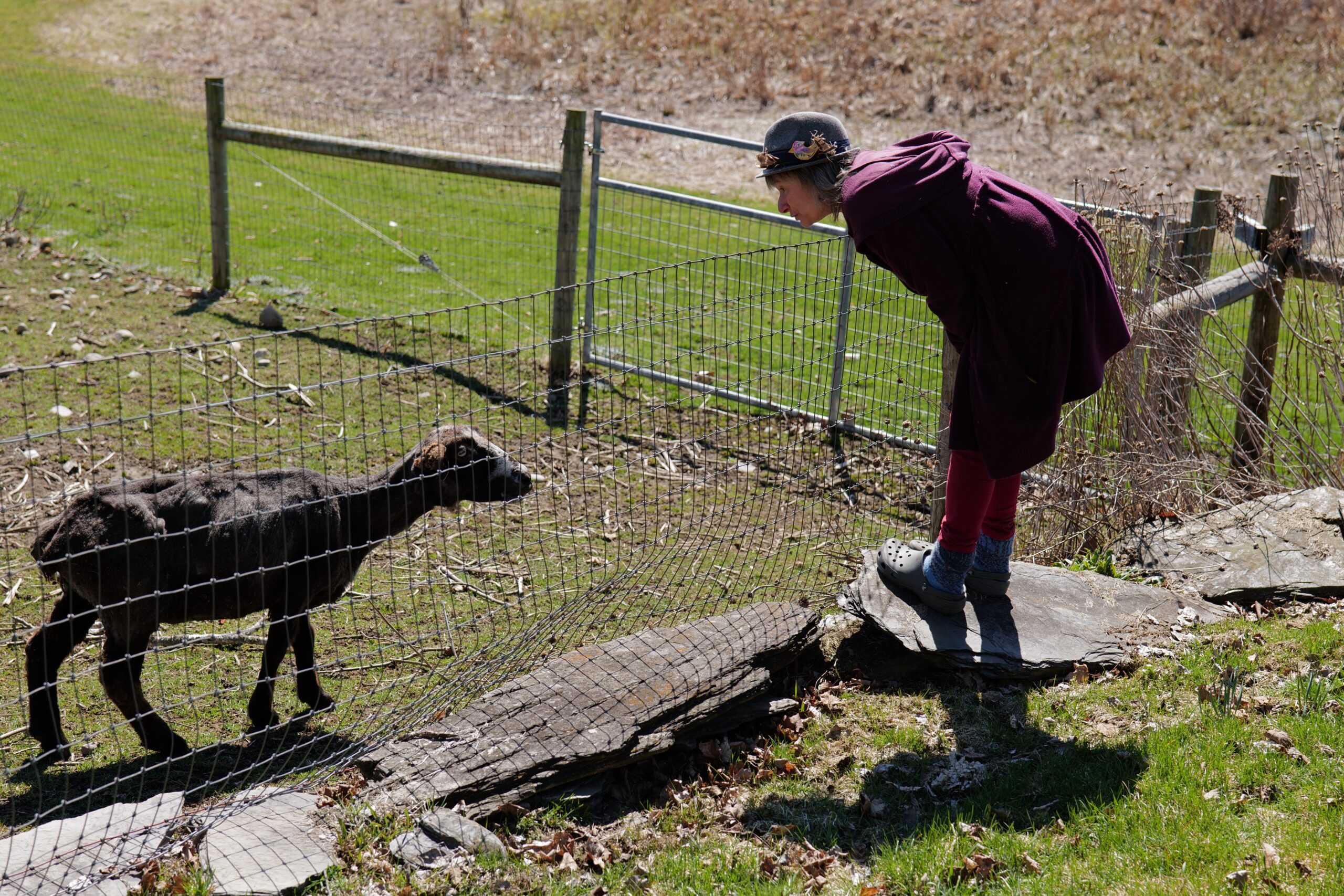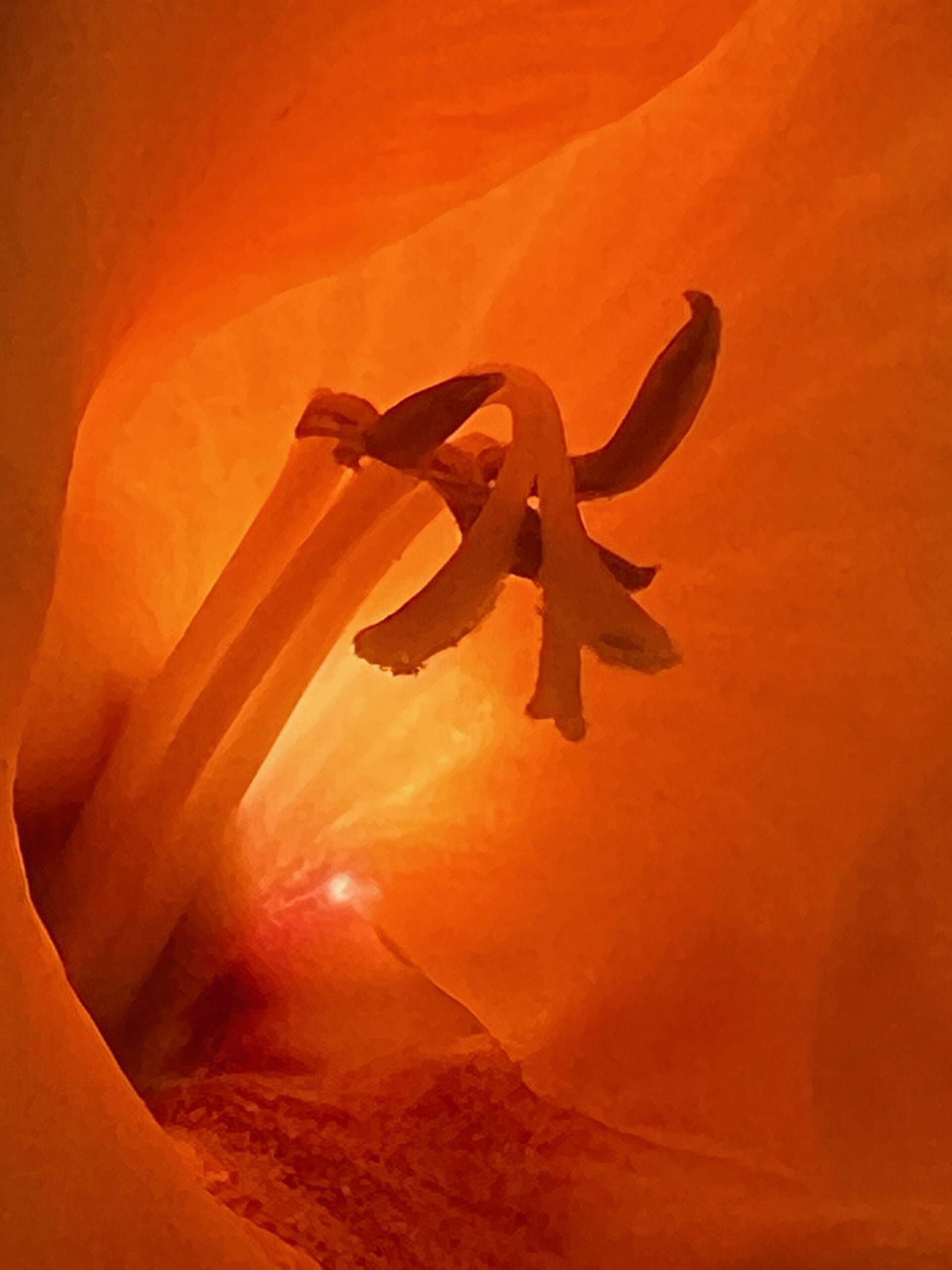I’ve been waiting for months to throw out the idea of the Divine Feminine, which I believe is the force that will soften our country and help save the planet. Like most people, the Mansion Residents in my Meditation Class – all female but one – never heard once in their lives that God was always meant to be a male and female entity. It wasn’t until men decided to push women aside and take over organized religion that God became our “Sacred Father.”
The meditation class has broadened to include discussions on spirituality, faith, aging, and compassion. Today was the most exciting class yet, at least for me.
The residents were stunned to hear that God – “our Father – does not make the idea of God a male idea. The story of how men took over God, made him a man and pushed women aside left the residents wide-eyed. They couldn’t hear enough about it. And every one of them said they had never heard anything about it. This isn’t something the male-dominated faiths seem eager to talk about as church after church bans woman pastors and seeks to control their pregnancy.
The divine feminine is described as an energy inside everyone and everything, often associated with female traits – compassion, nurture, forgiveness, intuition, and empathy. The feminine aspect of divine or godly power connects the earth. The sacred feminine primarily focuses on the inner being and our emotional world. Tapping into this energy can help heal your mind, body, and soul and can assist you in showing more kindness to the world and those around you. Keep reading to learn more.
When I read this, I thought these are the leaders we need, not the testosterone-heavy children pretending to be patriots and leaders.
In her famous essay, Ancient Roots, spiritual author and monastic Joan Chittister wrote this chapter below, which I read aloud to the Mansion residents. Everyone said they had never heard of this idea or heard any priest, pastor, man, or husband talk about it. They pleaded with me to chat more about it next week.
I will honored to do that.
From Joan Chittister, “Essential Writings:”
“The book of Genesis reads, as does every scripture of every religion on earth, about male/female creation out of the same substance: “Let us make humans in our image, in our image let us make them, male and female let us make them.”(Gen.1:26 – 27) God is male and female, not male. The scriptures reflect the reality of it, and the meaning is clear: how we see God determines how we see ourselves. The language we use shapes public perceptions of God. If we see God as only maleness, maleness becomes more God-like than femaleness. Maleness becomes the nature of God and the norm of humankind rather than simply one of its manifestations. If we limit ourselves to the Divine Masculine, we will never see the Divine Feminine.”
Have you ever heard about this? I asked Sharon, a poet and deep and original thinker. “No,” she said, “I never heard a single word about it.” I’m looking for a spiritual book that might help her.
That was the idea. The male popes, rabbis, and imans of organized religion decided it needed a male manifestation, and women were pushed into service or less relevant positions. The early Christian theologians never argued that women could not be holy or become priests. That came up in the letter when it was apparent how powerful and influential these institutions were becoming. Women were pushed aside, and the Christian women I am teaching how to meditate said this was the first time in their lives they heard that the first idea of God in Western civilization had no gender. God was about all of us.
We’ve come a long way; our former President regularly refers to women journalists and political features as being ugly, dishonest, and weak. Think of the difference it would have made if the values associated with women – compassion, empathy, and kindness – were still the church’s values and our political culture. Men are still fighting, more complex than ever, to keep women powerless and controlled, even in the most intimate parts of their lives.
My classes are not political. We never discuss politicians’ campaigns or candidates. But I think they really need to hear this story, and I’m looking forward to more talks about the Divine Feminine. It seems to be precisely what our world needs.
Chittister continued (what I read to the residents):
“The great figures of early Christianity centuries ago – Origen, Irenaeus, Anselm, Benard of Clairvaux, and Aelred – believed that the womb of God is the Divine Feminine and that without that awareness of the motherhood of Good, as well as the fatherhood of creation, we will never know the fullness of God in our own lives. None of us, neither women nor men. In the end, the real depth of the spiritual life, the real development of the psychological life, the real development of the psychological-emotional life, depends on whether or not we each nourish the feminine image of God in us and around us as fully as we do the image of the fatherhood of God when they delete female pronouns and so collapse the male the female into “all men” and “dear brothers,” and “God, our Mother,” into “God the father,” they derive us of the whole spirit of God.”
It was riveting to watch the women’s faces in my class, and they processed the idea that they had been misled all of their lives about the values of their religion as it relates to women and power. In 2024, thousands of years of the most potent faiths of history were formed, and a presidential candidate, Govern DeSantis, has made it illegal in public schools to teach what Chittister has written in her books. He wants to make sure the truth about women and religion does not influence children.
He thinks it makes America look bad.
But his problem is that the true history of religion is well-known and documented. And that women are voting in record numbers to block people like him.
Nuns in the Catholic Church can clean and wash sick priests, but they can’t conduct services. Many of the most powerful men in the church insist equal rights for women is blasphemy, even though the Bible never forbids it. Wholly and suddenly (thanks to Mr. Trump), the Republican Party has also embraced the persecution and control of women and their very bodies.
Zinnia and Alissa.

